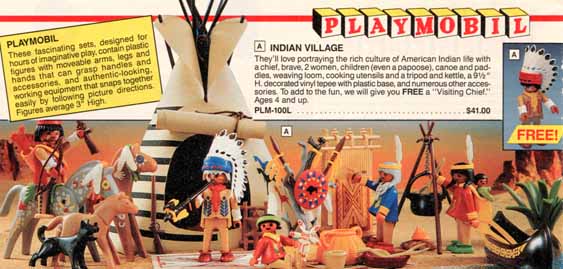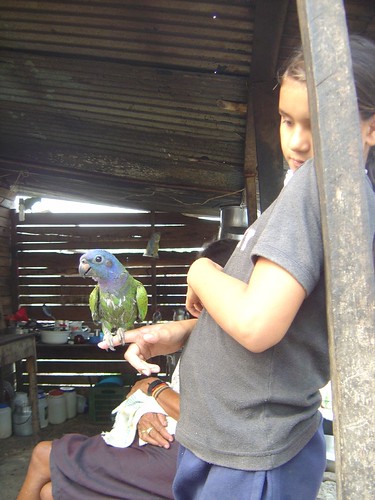 Quico says:
Quico says: I'll tell you what gets me about Chávez's reaction to the Great Financial Freakout of 2008. As the world faces a protracted recession, our supposedly Marxist government got caught totally unprepared, holding just 10 months worth of imports in foreign currency reserves and far fewer rainy-day funds than it'll need to smooth out spending if the crisis lasts more than a year or so.
Now, there's a lot of trash to be talked about Marxism, a doctrine that gets much more wrong than it gets right. One thing you can
not fault Marxism for, though, is ignoring recessions. Just the opposite: Marx focused almost obsessively on the cyclical nature of capitalism.
Das Kapital is, in important ways, an extended meditation on the business cycle, with capitalism portrayed as lurching inevitably from one crisis to the next, a pattern Marx thought would ultimately doom it. Chávez himself is, on some level, aware of this central bit of Marxist doctrine, which is why you've barely been able to wipe the shit-eating grin from his face for the last few weeks.
...but, if Chavez understood a crisis was looming, if he knew all along that capitalism, like Windox XP, just sort of seizes up every so often and needs a reboot, if he grasped that oil bust inevitably follows oil boom, then why the heck didn't he do
anything to bolster the country's resilience to these inevitable shocks?
I mean, c'mon! A Marxist who gets caught off guard by a recession is like a Jehova's Witness who gets caught off guard by the rapture!
Lets review the score here. Venezuela is a dependent monoexporter, getting 94.6% of its foreign currency earnings from oil exports. The price of oil has already fallen 46% from its high, and is now hovering around Chávez's budget-sustainability point of about $80/bbl.
There is, of course, no way to really forecast the oil market, but if the generalized craziness in the credit markets sets off a prolonged recession in North America and Europe - which is looking pretty likely these days - we could easily be looking at several years of depressed global demand for oil. OPEC will do what it can to blunt the impact, but it's easy to see oil prices hovering somewhere in the $35-75/bbl range over the next several years. Even at the higher part of that range, the government's spending plans become chimeric...and the chances of continuing to bankroll society by continually
increasing spending are pretty well nil.
Wait, don't we have reserves for cases like this? Well, the foreign reserves kitty is not quite empty - at
$39 billion, it looks healthy at first glance. Trouble is that at the furious rate we've been importing over the last few years, that'll only cover about 10 months of imports!
Plus, note, those are
currency reserves: money that's there to back the currency, not for the government to spend. So how about, rainy day funds? Money the government can actually use to pay teachers and nurses and such?
All we've got left over from that furious oil bonanza we've been living through is $15 billion or so - a sum that
ODH Group's Abelardo Daza estimates might tide us over for
a bit over year, maybe. Care to bet the global recession won't last longer than that?
Actually, Chávez did
worse than merely not preparing for a bust:
he actually dismantled the risk-management mechanisms that were in place when he got there! And this is the worst part, the most mind-bendingly maddening aspect of this whole situation: we actually
had a mechanism to smooth out the oil cycle! It was called FIEM, and it was carefully designed to set aside part the windfall during high-oil years so it could be spent when oil prices dropped. The Chávez regime first ignored and later chronically starved FIEM of funds. Today, there's less than a billion bucks in there - well under a week's worth of public spending - instead of the tens of billions we should've saved when oil was at $145/bbl.
Instead of saving, Chávez went nuts buying submarines for the navy and cool lookin' planes for the air force and oil for Fidel and oil refineries for Correa and houses made of oil for Daniel Ortega: an orgy of non-productive spending that means we're now heading into an oil price slump with more debt than we had when the boom started!
The scale of the irresponsibility in the way our public finances have been managed is
simply staggering. I mean, seriously, it defeats me: I don't know how to find the words.
It's, of course, kind of crass to look at the political opportunities that will be created by the social tragedy we're now heading toward. Still, the one ray of hope in all this is that Chávez's political vision will probably be as much a victim of this crash as Lehman Brothers was.
Our economy is more dependent on oil today than it was ahead of Viernes Negro in 1982. We are, once again, going to have to borrow to cover the shortfall caused by an oil slump, except this time we'll have to borrow either from very badly battered international credit markets or from geopolitical allies that are getting hit by the oil slump just as hard as we are (Iran, Russia).
We've seen this movie before - we know what it does to the prestige of those who govern while it's playing.
The first act will be devaluation. The second act will be the end of Chávez's
Rico McPato shtick, both at home and abroad. There's no way chavismo will be able to sustain a situation where only one of its customers pays full price for its oil. In fact, much of the petropatronage-supported influence Chavez has bought himself up and down the continent will start to dissipate...and that will happen at the same time as a charismatic, popular new leader pledged to double US foreign aid spending takes power in Washington.
Inside the country, the same dynamic holds. Chávez will try to blame the deep, painful spending cuts and the runaway inflation that will follow devaluation on the Empire, except the face of empire is about to change rather drastically. With his popularity already tanking enough to lose a referendum even a year before oil prices had even dropped, it's hard to see Chávez's remaining "soft" supporters staying onside through, say, the National Assembly elections in 2010.
Personally, I've always been very skeptical of claims that Chávez's "best days are behind him." Alberto Franceschi's been recycling that line in OpEds for the last 8 years and, as they say,
con ese cuento me dormían a mi.But this time it's different. It's been clear for a long time that nothing short of a sudden, sharp, systemic crisis in world capitalism causing a sustained fall in oil prices could slam the breaks on the chavista petrostate.
Well, here's your sudden, sharp, systemic crisis. Whatchoogonna do now, punk?
 Juan Cristobal says: The Chávez's administration has a long and distinguished record of pulling the most obscure ñángaras from the gutters of academia and putting them in positions where they can do some real harm. However, the current Minister of Planning, Haiman El Troudi, is in a class of his own.
Juan Cristobal says: The Chávez's administration has a long and distinguished record of pulling the most obscure ñángaras from the gutters of academia and putting them in positions where they can do some real harm. However, the current Minister of Planning, Haiman El Troudi, is in a class of his own.





